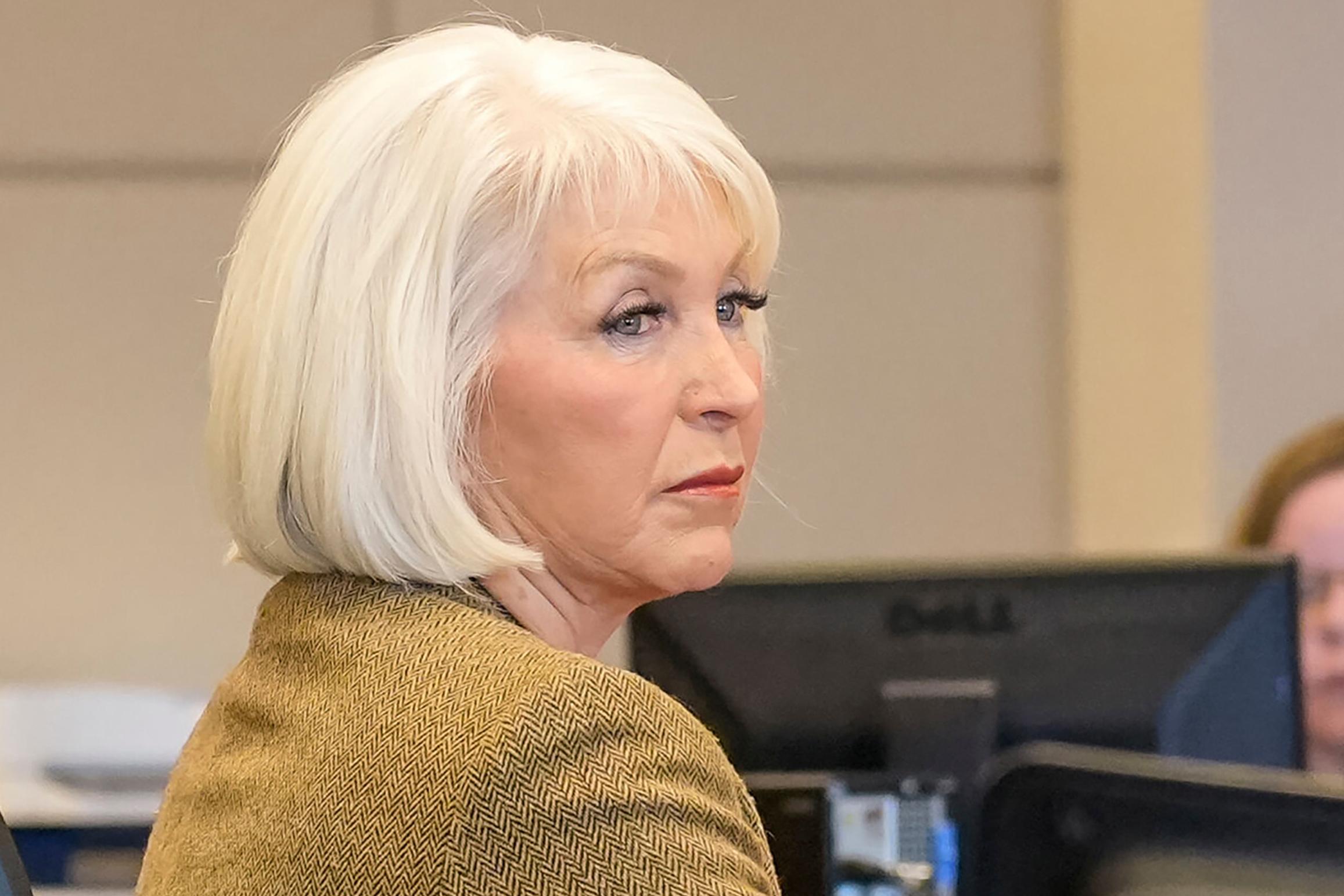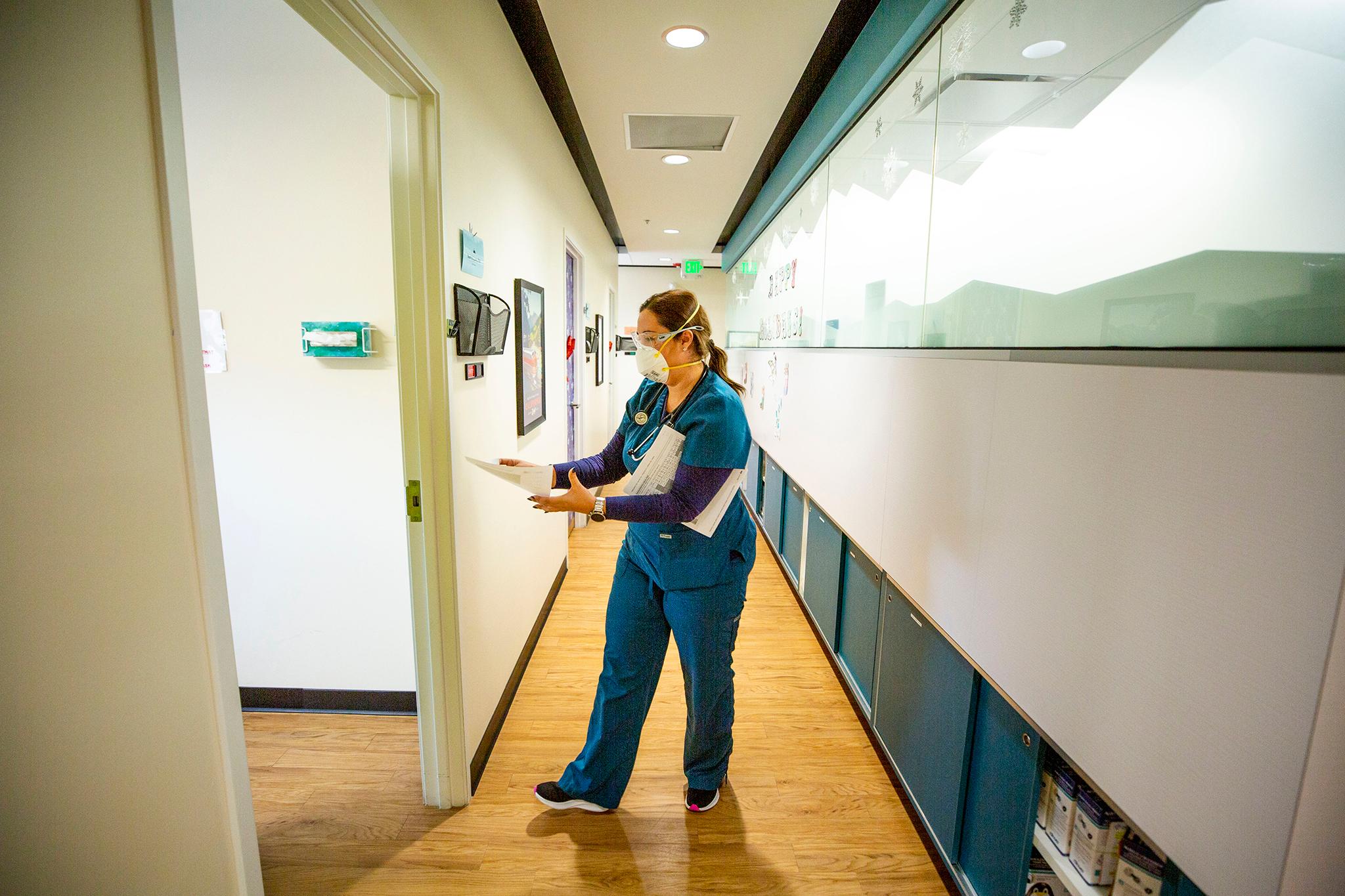
Updated @ 9:56 a.m.
Right before Christmas, in downtown Denver, families in cars pull up to a two-story brick building. The scene is festive, but in a 2020 kind of way. Outside, a group of women, wearing Santa hats and masks, bring out certificates and gift bags to the families.
“This is completely new. Before what we were doing, it was a celebration. We’d have a party for each of the programs, so they’d bring food,” said Diana Pineda, executive director and founder of Vuela for Health.
The non-profit serves Latinx communities and offers a health education course. The families recently completed it via Zoom.
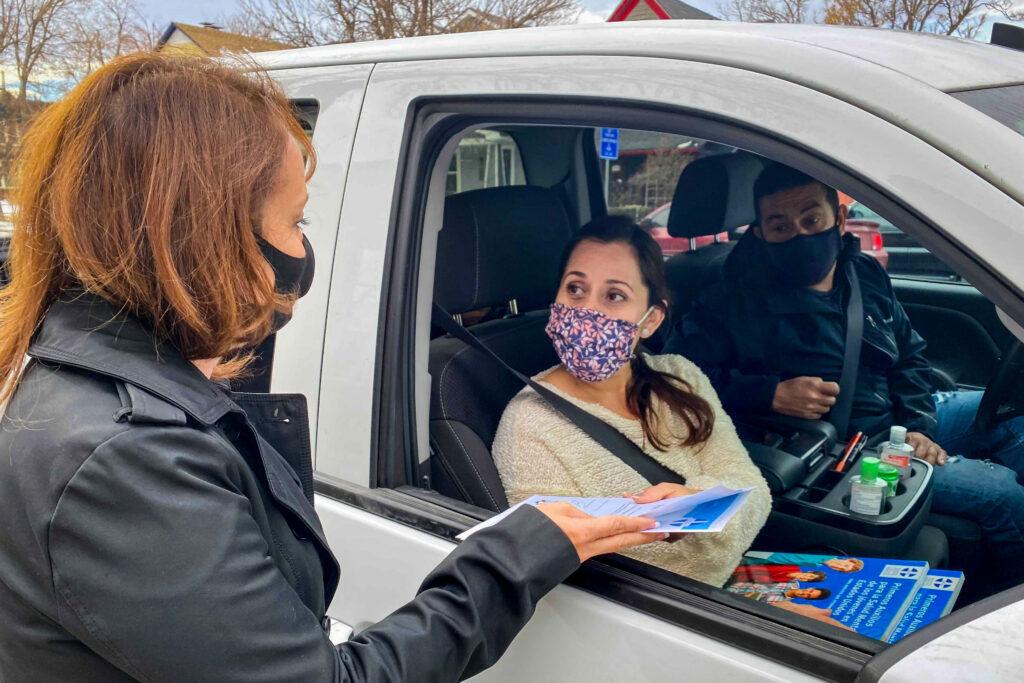
Pineda said this year, that information is key. Many have questions about COVID-19. That includes how to best handle the holidays. Fifteen-year-old Roslyn Ruano said that usually, it’d be a big celebration. But thanks in part to the health guidance they’ve gotten, not this year.
“This year we're probably just going to stay at home. We're definitely gonna stay at home,” Ruano said. “We're gonna not go with the rest of our family, like we usually would.”
Spanish-language television and radio are trusted sources of information
Throughout the health crisis, trusted community voices have served as crucial resources. Ruano’s mom, Clara Mosso, sits next to her in the driver’s seat. Behind a bright pink mask with a butterfly, she said she follows Spanish-language TV for news about the vaccine.
“Yeah, on the TV, I was listening, everything like right now that the vaccination is here, but it's only for the doctors and the other adults,” Mossa said. “And maybe in the next phase, maybe I can be there because I have asthma, but we don't know.”
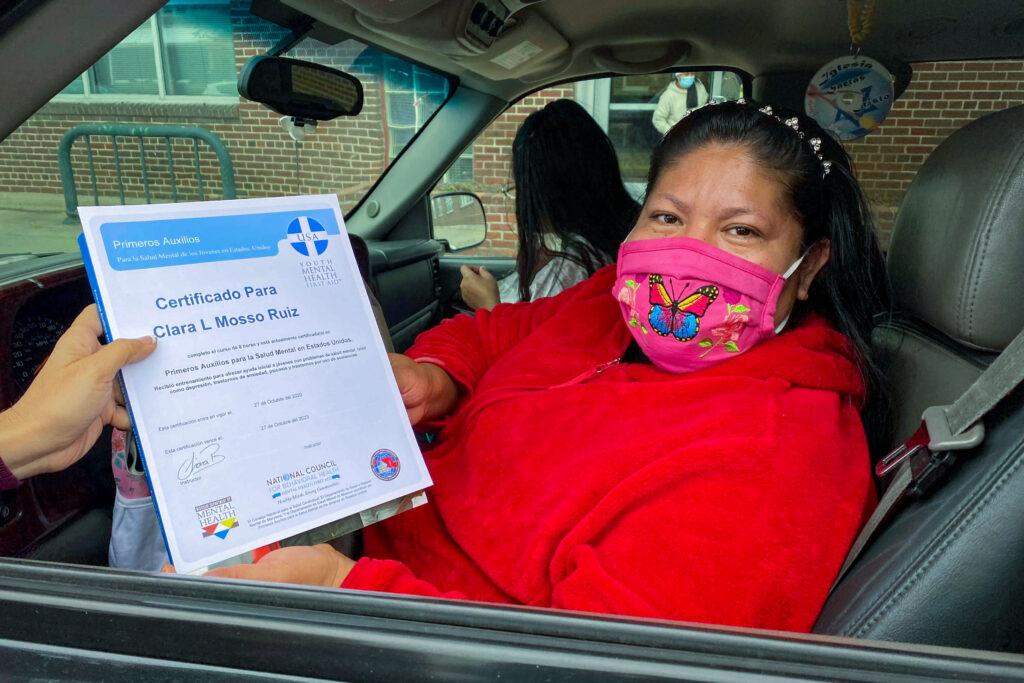
In another car, Lucia Bermudez and her husband sit with hand sanitizer in the cup holders. Their three kids are in the back. Bermudez said they planned to have a quiet, small Christmas at home this year. As for the vaccine, they’ll turn to groups like Vuela for Health for guidance.
“We always feel that support," and know where to go with questions, Bermudez said.
One other vital resource is Spanish-language media. Pineda takes questions on a two-hour show every other week on Denver-based KNRV radio, 1150 AM and 96.1 FM. The all-talk station has a huge audience in Northern Colorado. Rodolfo Cardenas is the news director and host of “Hablemos Hoy.”
He said the community has had “serious problems with this pandemia, this COVID-19 pandemia.”
For much of the pandemic, Latinx and Black residents are getting sick and dying from COVID-19 at higher rates in Colorado and nationally. Despite that, Cardenas said many don’t always heed warnings about the danger.
“Unless the virus knocks at the door, a lot of people, they don't believe this is that serious,” he said.
The station works hard to inform about things like COVID-19 precautions over the holidays. They also try to address unfounded fears of listeners who are undocumented, like concerns if they get vaccinated, they’ll get listed on a government registry. Cardenas said they addressed similar fears when U.S. Census surveys went out this year.
“If we do exactly the same thing for the flu shots, and for the COVID-19, you know, we’ve got to do it,” Cardenas said. “People understand that, they trust us when we say, ‘listen, it’s safe, you don't have to worry about that.’”
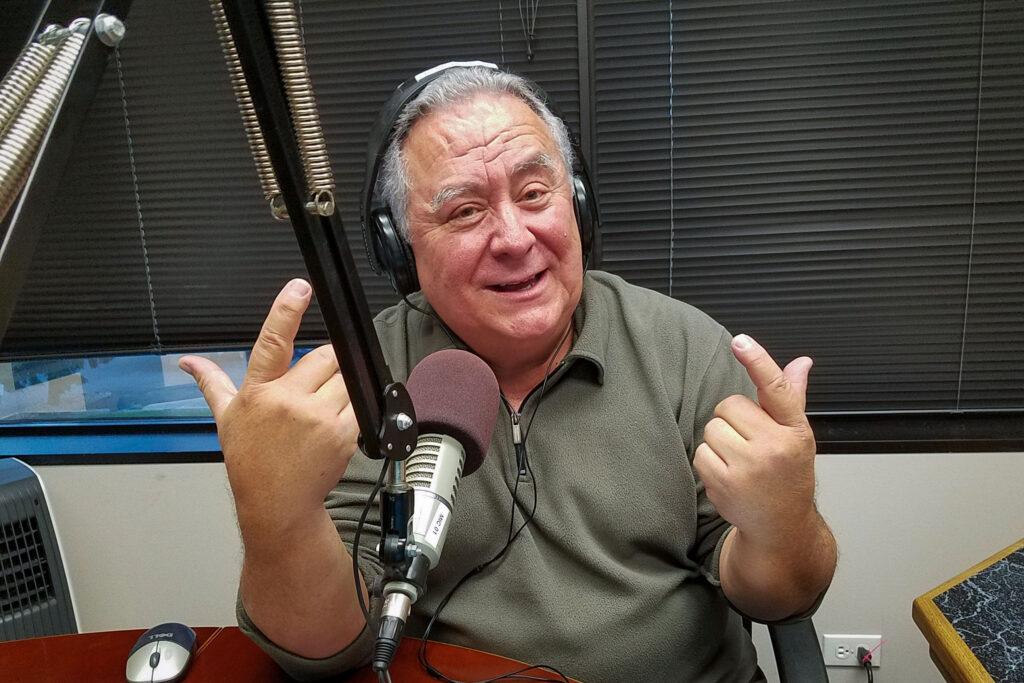
Community partners face the long-lasting effects of historic discrimination
Well-known community leaders, including some affiliated with churches, will be key voices, Cardenas said.
“These people are very well known in the community, they’re very trusted in the community and people love them. And then will listen to them,” he said.
Pineda’s group, Vuela for Health, is one such key community connector. It runs, in collaboration with Denver Health, programs on diabetes prevention, physical activity, healthy cooking, mental health and breast cancer screening. It employs more than a dozen promotoras, health communicators who connect residents with programs and services.
“We have the trust of the community,” said Pineda, who also posts educational videos on Facebook and YouTube.
But Maggie Gomez, deputy director of the Center for Health Progress, said historic discrimination has fostered distrust of the health system among Latinx people. She adds that the response to COVID-19 provides a chance to create partnerships and build trust.
“I think it's about partnerships,” Gomez said. “I don't know that your average community member, especially a non-English speaking community member is going to start looking for the local public health department to follow them on Facebook. It would take so much work to get there, to develop the trust.”
Still, Gomez said that hard work is not free and non-profits are feeling the economic pain of pandemic.
“The trusted messengers, who are nonprofit agencies, who are individual community leaders, are also experiencing the same crunch that the small business sector is. There is not enough funding to continue the work,” said Gomez. “There is a lot of unpaid work happening, and we are at a turning point through which I think we will lose non-profits who hold those important spaces.”
Recent polls show Latinx and Black residents in Colorado and nationwide are wary about the vaccine
Now Colorado is set to roll out a million dollar public awareness campaign.
“It's a pilot initiative,” said Gina Febbraro, who leads the state health department’s stakeholder and community engagement related to the COVID-19 vaccine.
She said the new program intends “to foster relationships and dialogue with communities who have been disproportionately impacted by COVID-19, uh, particularly communities of color.”
Febbraro said they couldn’t do it without community groups, health centers, churches, grassroots organizations, and providers.
“It creates an intentional space to hear from communities and to listen to communities,” she said. “And we're finding in overcoming vaccine hesitancy that's the first step is we need to show up and listen to communities.”
The health department is also providing resources on its website.
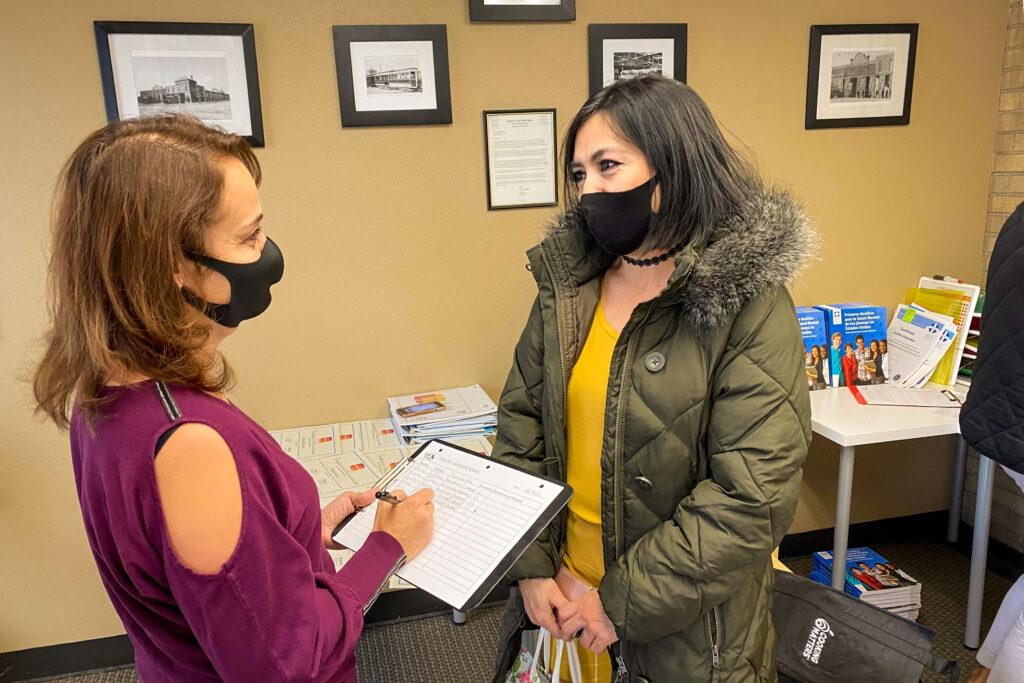
A critical moment for COVID-19 vaccines and for equity
Gov. Jared Polis said the state’s plan for outreach in those communities, called “Champions for Vaccine Equity,” is to recruit leaders who can lend credibility to the vaccines.
“It’s not me or even the doctors as the main messengers — it’s community leaders and faith leaders,” he said. “We are convening them and we are working with them to establish a higher degree of confidence.”
The governor said the disproportionate effects of COVID-19 on communities of color are not because of race entirely, but rather a confluence of societal factors.
“You are not at a higher risk simply because of your race,” he said. “It is not any biological aspect of race that places you higher at risk. There are certain things that correlate with race — that might be pre-existing conditions, that might be the type of job you have.”
Now is a critical moment, for both vaccines and health equity, said Dr. Yadira Caraveo, the only current state lawmaker in Colorado with a degree in medicine. State Rep. Caraveo, who has pediatric practice in Thornton, said building those community partnerships will go a long way to help people understand the vaccine and even address larger health inequities.
“I don't want the pandemic to end for one population that has always had access, good access to health care and then not end up for one that we have traditionally left behind,” she said.
Caraveo worries if the collective response to the pandemic fails, it could go on for months and even years in communities of color.







